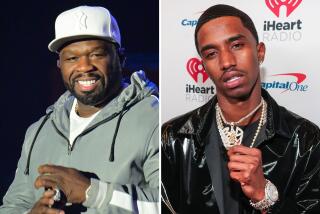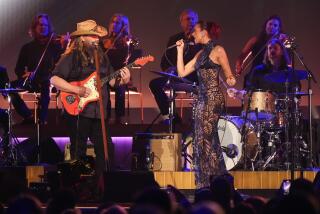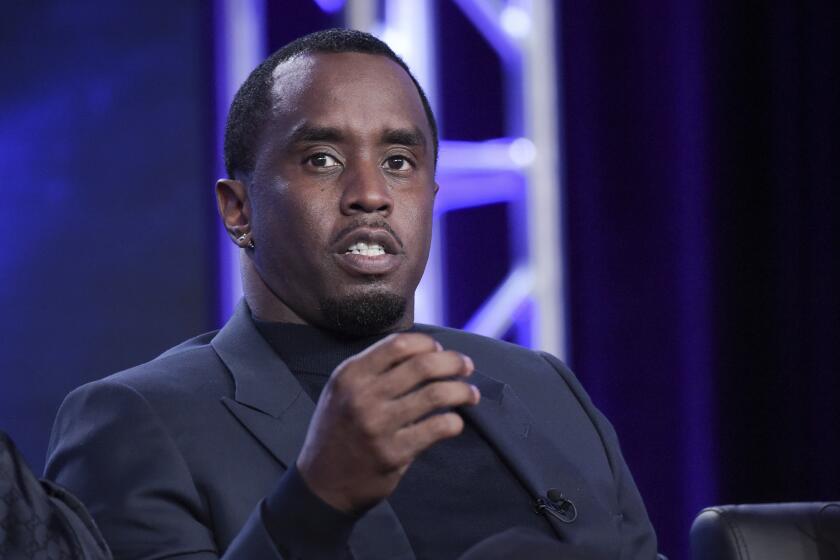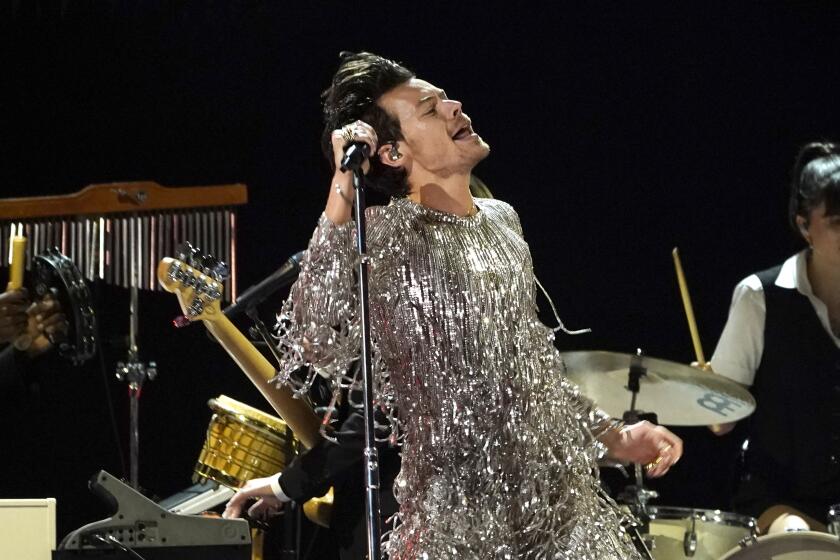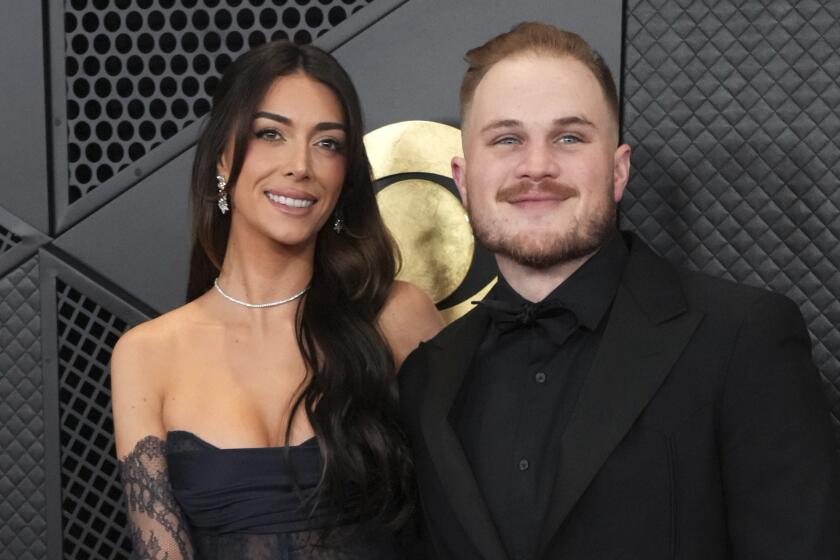Player Keeps Harping on the Many Facets of American Blues
Up until five years ago, William Clarke worked as a machinist, helping build B-1 bombers and space shuttles, and escaping nights and weekends to blow his harmonica in a handful of inner-city blues clubs.
He’d been playing blues on the sly like this since the blues revival of the mid-1960s, when most of his friends were more interested in the hard rock and psychedelia of the era. But after two decades working in that El Segundo factory, performing and recording albums on the side, his wife encouraged him to finally begin a career as a full-time blues player.
“It’s working out real good now. But, man, at first it was really slow, like two gigs a month,” Clarke said. “I was down at the pawnshop all the time, pawning the TV sets and stuff.”
He stuck through those hard times, he said, because he knew “the environment was just right for it.”
“When I decided to play music full time, by then Stevie Ray Vaughan and Robert Cray were having their music played all over the radio. That opened up a lot of people’s ears to blues music.” Clarke’s new “Serious Intentions” album, released by Alligator Records, is the latest bit of evidence that the bearded harmonica-player has survived the career transition. As on his last record, 1990’s “Blowin’ Like Hell,” Clarke takes listeners on a trip through a variety of American blues styles, from raw country blues to full-bodied Chicago blues.
“I try to present all different aspects of the way I see blues,” he said last weekend. “It’s not just the same old stuff. A lot of people think it’s all some kind of lazy Jimmy Reed beat. And it’s not. There’s a lot to it.”
In a few hours, Clarke would be performing some of those old rhythms again. He had just arrived at The Mint club, already wearing dark glasses, his hair slicked back, carrying a briefcase full of harps.
Another blues act was setting up on the club’s small stage for a brief sound check, and Clarke spoke amid a background of acoustic guitar and gruff vocals. “It’s real truthful music,” he said. “To me, the rhythm of it is just irresistible. That’s the first thing I fell in love with. If you can’t dig the rhythm of how blues music sounds, then there’s really something wrong with you.”
During his first teen-age flush of excitement over the blues, Clarke worked to learn the drums, and then the guitar, aiming for the sort of expressive guitar sound mastered by such artists as John Lee Hooker and Lightnin’ Hopkins. Although Clarke played some basic guitar on his last record, he’s been committed to the harmonica for most of his professional career.
“I could bend the notes to get a real bluesy sound,” explained Clarke, who is also an aggressive singer. “I really feel the harmonica is the bluesy-est of all the instruments. But it came easier to me than the other ones. Also there were no other harp players in the neighborhood, so that meant no competition. I was a terrible drummer anyway.”
He’s largely a self-taught musician, but when he became friends with George (Harmonica) Smith in 1977, the veteran blues man guided young Clarke to the chromatic harp, which is now a key ingredient in Clarke’s sound.
It was just this sort of encouragement from older Los Angeles blues players that kept him going, Clarke says now. So it was with some gratitude that he produced a recent anthology of local blues musicians--including Smokey Wilson and the late Hollywood Fats--titled “Hard Times,” for the European Black Magic label.
“These guys kind of took me under their wing, and that helped me,” Clarke said. “They patted me on the back and made me feel good and acted like I could play, which I couldn’t. But I guess they saw I had a genuine interest in the music. And so I thought this would be a good way to pay them back.
“I lost money on the record, but it didn’t matter. I would have probably done it if I’d had to pay for it myself. It was just something I needed to do.”
In a way, that album could also serve as a reminder to the outside world that Los Angeles has long been home to an active blues scene, where such luminaries as the late Willie Dixon, Big Joe Turner and others lived and played for several years.
“Check this out: I had a guitar player in my band last year, and he was from Alaska. And he was a good player.
“People like to stereotype and say ‘Man, you’ve got to be from the Mississippi Delta and hop a freight train up to Chicago to really know what you’re talking about.’ But that’s all bull,” Clarke said. “If you don’t feel this music, it don’t matter where you’re living, it ain’t going to help you none.”
TRAVELIN’ BAND: Four student musicians from Agoura Hills High School will soon embark on a three-week tour of Japan as part of the 21-member Monterey Jazz Festival California High School All-Star Band.
The trip for guitarist Yarone Levy, 17, alto saxophonist Doron Orenstein, 18, trombonist Nick Rapattoni, 16, and tenor saxophonist Jeremy Wasser, 17, begins with a few days of full-band rehearsal at UC Berkeley before leaving for Japan on July 16. While there, the band will perform with a variety of professional musicians, including former Duke Ellington Band coronet player Bill Berry.
“Japan is actually jazz crazy,” said Niki Rapattoni, whose son is one of the students going on the tour. “I didn’t know that until we got involved with this tour.”
She added that the selection of so many students from a single school “is rather unique.” She attributed their success to the Agoura Hills High School music program headed by John Mosley.
After living in Pacific Palisades for 10 years, Rapattoni said, “We moved into this school district intentionally, so that my son could participate in the program. He is going to be a music major in college.
“Most of these students in the program play multiple instruments. They are multitalented musically.”
More to Read
The biggest entertainment stories
Get our big stories about Hollywood, film, television, music, arts, culture and more right in your inbox as soon as they publish.
You may occasionally receive promotional content from the Los Angeles Times.
